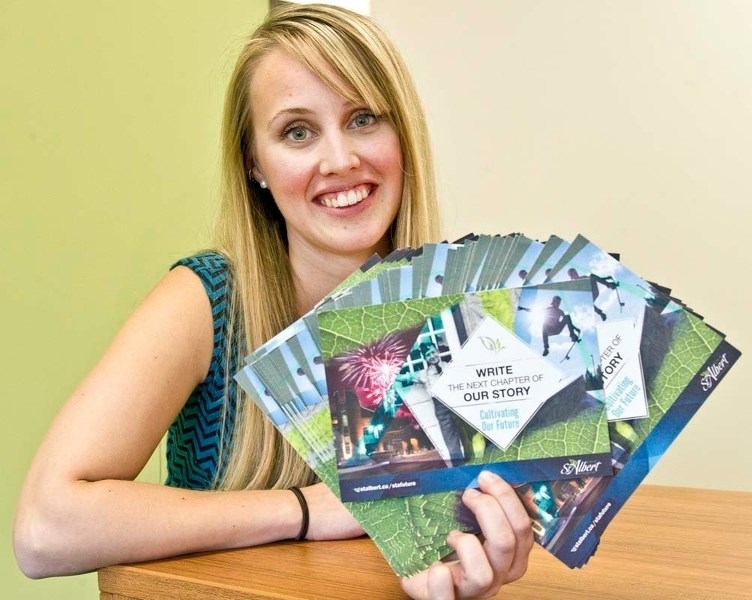St. Albert's endeavours to develop a community vision has garnered the largest response rate in the history of the city's public engagement efforts – and the outreach isn't done yet.
St. Albert's endeavours to develop a community vision has garnered the largest response rate in the history of the city's public engagement efforts – and the outreach isn't done yet.
“Cultivating Our Future” is a visioning process led by the community sustainability committee and being paid for via federal gas tax grants. This summer, residents were approached online, by mail and even in person to participate by sharing what they love about St. Albert and where they'd like to see the community go in the future.
“We're working on our final tally, but we have over 2,800 responses which is really awesome. That's by far the largest public engagement we've ever done in the community, it's more than double the last largest community engagement,” said Kalen Pilkington, the city's community sustainability co-ordinator.
The first phase of the project wrapped up Sept. 30. In addition to the large number of responses, about 450 people asked to be kept in the loop on the project.
Those interested parties and others might be tapped during the second phase of engagement that will take place over November and December.
Like the first, the second phase will include online surveys, surveys at kiosks and engagement at public events. But there will also be focus groups to give feedback on the draft vision, values and pillars of sustainability document that the committee is developing based on the feedback.
Pilkington said the second phase of engagement is to ensure the contents of the committee's drafts accurately reflects the feedback received.
“We want the community members to write it because it's their vision for the future,” Pilkington said. There will be a “what we've heard” report posted online in a few weeks.
That feedback is meant to show both trends and tensions, such as some people want more density while others don't want high rises.
According to Pilkington, the number one and two things identified by most residents that they like about St. Albert are by far and away the park and trail systems, and St. Albert's “small town feel.” The third was arts and events.
Pilkington noted the term “small-town feel” can mean different things to different people, and part of the committee's work is to try and understand what's meant by that.
Coun. Wes Brodhead, who serves as one of council's representatives to the committee and as co-chair, noted the difficulty in defining that term as well.
“A lot of them talked about walkable communities, they talked about knowing their neighbour,” he said. “How do we sustain that as the community grows?”
He said the community sustainability initiative is a worthwhile one, pointing out that it's a positive thing any time you can engage the public on these sorts of questions.
While not much of the feedback so far has been surprising, Brodhead said it's valuable for council to have that data to help guide their decisions.
“You can sort of plod along and you know, do the bare minimum and allow the community to be what it will be, or you can intentionally sit down and say these are the sorts of things our community wants and we're going to find a way to get it done. And to me that's the worth of a sustainability committee, is that it raises this debate to a different level and it gets back from the community what they believe to be important,” Brodhead said.
